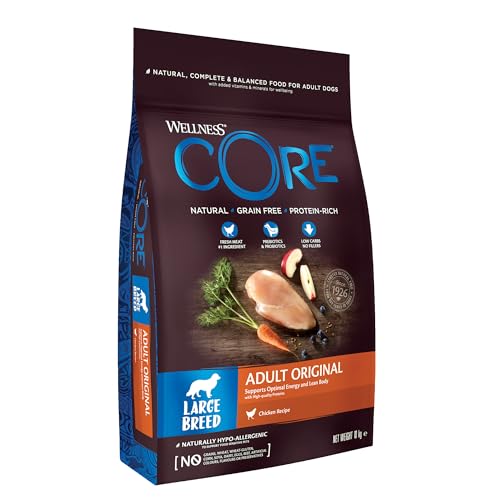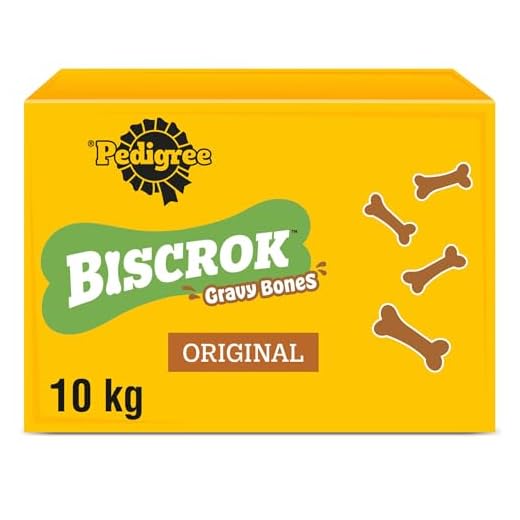




Offering your furry companion a taste of processed meat is not advisable. Ingredients commonly found in these products can be harmful, leading to potential health complications. High sodium content and preservatives like nitrates and nitrites are particularly concerning. These additives can cause excessive thirst, urinary issues, and in some cases, even long-term health problems.
When I first considered sharing my lunch with my pet, I was excited. The way my pup looked up at me, tail wagging, made it hard to resist. However, after doing some research, I realised that what seems like a tasty treat could actually pose risks. I learned that some types of processed meats contain garlic or onion powder, both of which are toxic to our four-legged friends.
Instead of processed options, look for healthier alternatives. Lean meats like chicken or turkey, cooked plain without seasoning, make excellent choices for rewarding your pet. Always remember to introduce any new food gradually to monitor for any adverse reactions. Keeping your companion’s diet balanced is key to ensuring their wellbeing and longevity.
Is Processed Meat Safe for Your Canine Companion?
When it comes to giving your furry friend a tasty treat, processed meat isn’t the best choice. The potential risks often outweigh the benefits. Here’s what to keep in mind:
Nutritional Concerns
- High Sodium Content: Most varieties contain excessive salt, which can lead to dehydration and other health issues.
- Preservatives: Chemical additives can cause allergic reactions or digestive problems in some pets.
- Fatty Cuts: Many processed meats are high in fat, increasing the risk of obesity and pancreatitis.
Health Risks
- Digestive Upset: Even small amounts can lead to stomach issues.
- Long-Term Effects: Regular consumption may contribute to chronic health problems.
- Allergic Reactions: Some animals might react negatively to ingredients in processed products.
If you want to treat your pet, consider healthier alternatives like lean meats or vegetables. Always consult your vet before introducing new foods into their diet to ensure their well-being.
Potential Risks of Feeding Processed Meat to Canines
Feeding processed meat to your canine companion can lead to several health complications. These products often contain high levels of sodium, which may result in excessive thirst and urination, and in severe cases, sodium ion poisoning. Symptoms of this condition include vomiting, diarrhoea, and seizures.
Moreover, many varieties of processed meat include additives and preservatives, such as nitrates and nitrites, which can be harmful over time. These chemicals have been linked to various health issues, including certain types of cancer in both humans and animals. Some products may also contain garlic or onion powder, both of which are toxic to canines and can cause gastrointestinal upset or more severe health problems like hemolytic anaemia.
Weight Gain and Obesity Risks
Regularly offering such meat can contribute to weight gain due to its high fat content. Obesity in canines can lead to numerous additional health issues, including joint problems, diabetes, and reduced lifespan. If you want to treat your furry friend, consider healthier options such as lean meats or vegetables that provide nutritional benefits without the added risks.
Allergic Reactions and Sensitivities
Some canines may also have sensitivities or allergies to specific ingredients found in processed meats. Symptoms can manifest as skin irritations, itching, or gastrointestinal distress. If you notice any unusual behaviour or health issues after introducing this type of food, it’s wise to consult with a veterinary professional immediately.
Ingredients in Sausage That Can Harm Canines
Feeding processed meat to your furry friend can lead to potential health hazards. Certain components found in these products can be detrimental to their wellbeing. Here are some harmful ingredients to watch out for:
Salt: High sodium levels can lead to increased thirst and urination, and in severe cases, sodium ion poisoning. Symptoms may include vomiting, diarrhea, and even seizures.
Spices: Ingredients like garlic and onion are toxic to canines, causing oxidative damage to red blood cells, which can result in anaemia. Even small amounts can be harmful over time.
Preservatives: Artificial additives such as nitrates and nitrites are commonly used to enhance flavour and shelf life. These chemicals can lead to health issues, including cancer, if consumed regularly.
Fats: Excessive fat content can trigger pancreatitis, a painful condition that affects digestion. Signs include vomiting, abdominal pain, and lethargy.
Fillers: Low-quality meats and by-products may contain harmful substances, lacking the necessary nutrients. These fillers do not provide the required sustenance for optimal health.
Consider opting for high-quality nutrition tailored to your pet’s needs, such as the best dog food for small dogs with arthritis, to ensure their health is prioritised. It’s essential to be vigilant about what you offer your canine companion. Always consult your vet if in doubt about specific foods.
How Sausage Affects a Dog’s Digestive System
Feeding processed meat can lead to gastrointestinal distress in pets. Many additives and spices in these products may upset their stomachs, resulting in symptoms like vomiting and diarrhoea. It’s crucial to monitor your companion after introducing any new food into their diet.
Common Reactions
Some canines may experience bloating due to high-fat content, which can lead to more severe health issues if not addressed. If your furry friend shows signs of discomfort, it’s advisable to consult a veterinarian promptly. Keep an eye out for unusual behaviour or changes in appetite, as these can indicate digestive troubles.
Long-Term Effects
Regular consumption of rich meats can disrupt a pet’s gut flora, leading to chronic digestive issues. The balance of good bacteria is essential for their wellbeing. A diet lacking in fibre may also lead to constipation, making it uncomfortable for them. Incorporating vegetables or high-quality kibble into their meals can help mitigate these risks.
Always prioritise a balanced diet tailored to your companion’s specific needs, ensuring they remain healthy and happy.
Safe Alternatives to Processed Meats for Treats
Consider offering your furry friend small pieces of cooked chicken or turkey. These lean meats are rich in protein and less likely to upset their stomach compared to processed options. Just ensure there are no bones and avoid using any seasoning.
Vegetable Options
Carrots are a fantastic choice. They are low in calories and high in fibre, making them a crunchy delight that most pups enjoy. Another option is sweet potatoes, which can be baked and cut into bite-sized pieces. These are not only nutritious but also provide a sweet taste that many canines love.
Commercial Treats
If you’re short on time, consider high-quality commercial snacks made specifically for canines. Look for products with natural ingredients and no artificial additives. Always check the label to ensure they meet your pet’s dietary needs.
Rice cakes, without any salt or additives, can also serve as a light and crisp treat. Just break them into small pieces to avoid any choking hazards.
Offering a variety of these alternatives will keep your companion excited at treat time while ensuring their health remains a priority. Balancing treats with their regular diet contributes to their overall well-being and happiness.
Signs of Adverse Reactions in Dogs After Eating Processed Meat
Watch closely for any unusual behaviour after your canine companion consumes processed meat. Some common indicators of a negative response include vomiting, diarrhoea, excessive drooling, and lethargy. If you notice any of these symptoms, consult your veterinarian immediately.
Behavioural Changes
Uncharacteristic behaviour may manifest as restlessness, decreased appetite, or signs of discomfort. If your furry friend is pacing or seems anxious, it could indicate digestive distress. It’s wise to monitor their overall mood and energy levels closely.
Physical Symptoms
In addition to digestive upset, physical signs can include bloating or abdominal pain. If your pet’s stomach appears distended or they are whining when touched, this warrants immediate veterinary attention. Allergic reactions might also surface as skin irritations or hives, so keep an eye out for any unusual bumps or redness.
| Symptom | Possible Cause |
|---|---|
| Vomiting | Digestive upset or food intolerance |
| Diarrhoea | Indigestion or ingredients that irritate the gastrointestinal tract |
| Excessive Drooling | Reaction to unhealthy additives or flavours |
| Lethargy | General malaise or discomfort |
| Bloating | Possible gastrointestinal obstruction or gas buildup |
Being alert to these signs can make a significant difference in your pet’s well-being. If any symptoms persist, prioritise a visit to the vet for a thorough evaluation and advice tailored to your furry friend’s needs.
Consulting Your Vet About Feeding Sausage to Dogs
Before making any dietary changes for your furry companion, it’s crucial to have a conversation with your veterinarian. They can provide personalised advice based on your pet’s specific health needs and dietary requirements.
Key Questions to Ask Your Vet
- Is my pet at risk for any health issues that could be exacerbated by certain ingredients?
- What portion sizes are appropriate, if any?
- Are there specific brands or types to avoid due to additives or preservatives?
- What are the signs of digestive upset I should watch for?
Additional Considerations
Discuss any past reactions your pet may have had to new foods. Share details about their diet and any pre-existing conditions. This information will help your vet give tailored recommendations. Regular check-ups will also ensure your pet’s health is monitored if you decide to include new treats in their diet.
Always prioritise your canine’s well-being by involving a professional in any dietary decisions. Their expertise can prevent potential health issues and ensure your best friend remains happy and healthy.








